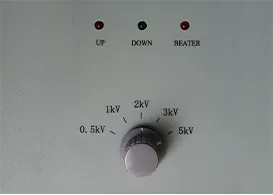 English
English



-
 Afrikaans
Afrikaans -
 Albanian
Albanian -
 Amharic
Amharic -
 Arabic
Arabic -
 Armenian
Armenian -
 Azerbaijani
Azerbaijani -
 Basque
Basque -
 Belarusian
Belarusian -
 Bengali
Bengali -
 Bosnian
Bosnian -
 Bulgarian
Bulgarian -
 Catalan
Catalan -
 Cebuano
Cebuano -
 China
China -
 China (Taiwan)
China (Taiwan) -
 Corsican
Corsican -
 Croatian
Croatian -
 Czech
Czech -
 Danish
Danish -
 Dutch
Dutch -
 English
English -
 Esperanto
Esperanto -
 Estonian
Estonian -
 Finnish
Finnish -
 French
French -
 Frisian
Frisian -
 Galician
Galician -
 Georgian
Georgian -
 German
German -
 Greek
Greek -
 Gujarati
Gujarati -
 Haitian Creole
Haitian Creole -
 hausa
hausa -
 hawaiian
hawaiian -
 Hebrew
Hebrew -
 Hindi
Hindi -
 Miao
Miao -
 Hungarian
Hungarian -
 Icelandic
Icelandic -
 igbo
igbo -
 Indonesian
Indonesian -
 irish
irish -
 Italian
Italian -
 Japanese
Japanese -
 Javanese
Javanese -
 Kannada
Kannada -
 kazakh
kazakh -
 Khmer
Khmer -
 Rwandese
Rwandese -
 Korean
Korean -
 Kurdish
Kurdish -
 Kyrgyz
Kyrgyz -
 Lao
Lao -
 Latin
Latin -
 Latvian
Latvian -
 Lithuanian
Lithuanian -
 Luxembourgish
Luxembourgish -
 Macedonian
Macedonian -
 Malgashi
Malgashi -
 Malay
Malay -
 Malayalam
Malayalam -
 Maltese
Maltese -
 Maori
Maori -
 Marathi
Marathi -
 Mongolian
Mongolian -
 Myanmar
Myanmar -
 Nepali
Nepali -
 Norwegian
Norwegian -
 Norwegian
Norwegian -
 Occitan
Occitan -
 Pashto
Pashto -
 Persian
Persian -
 Polish
Polish -
 Portuguese
Portuguese -
 Punjabi
Punjabi -
 Romanian
Romanian -
 Russian
Russian -
 Samoan
Samoan -
 Scottish Gaelic
Scottish Gaelic -
 Serbian
Serbian -
 Sesotho
Sesotho -
 Shona
Shona -
 Sindhi
Sindhi -
 Sinhala
Sinhala -
 Slovak
Slovak -
 Slovenian
Slovenian -
 Somali
Somali -
 Spanish
Spanish -
 Sundanese
Sundanese -
 Swahili
Swahili -
 Swedish
Swedish -
 Tagalog
Tagalog -
 Tajik
Tajik -
 Tamil
Tamil -
 Tatar
Tatar -
 Telugu
Telugu -
 Thai
Thai -
 Turkish
Turkish -
 Turkmen
Turkmen -
 Ukrainian
Ukrainian -
 Urdu
Urdu -
 Uighur
Uighur -
 Uzbek
Uzbek -
 Vietnamese
Vietnamese -
 Welsh
Welsh -
 Bantu
Bantu -
 Yiddish
Yiddish -
 Yoruba
Yoruba -
 Zulu
Zulu
insulation oil testing
Insulation Oil Testing Ensuring Reliability in Electrical Systems
Insulation oil, often used in transformers, capacitors, and circuit breakers, plays a critical role in the efficient operation of electrical systems. As a dielectric fluid, it helps to insulate and cool electrical components, preventing overheating and ensuring reliable performance. However, over time, the quality of insulation oil can degrade due to exposure to heat, moisture, and other environmental factors. This degradation can lead to electrical failures, posing risks to infrastructure, safety, and economic stability. Therefore, regular insulation oil testing is essential to maintain the integrity and longevity of electrical equipment.
Why Test Insulation Oil?
The primary reasons for testing insulation oil include assessing its dielectric strength, determining the presence of contaminants, and evaluating the overall condition of the oil. These factors are crucial as they influence the performance and lifespan of electrical equipment.
1. Dielectric Strength This property measures the oil's ability to withstand electrical stress without conducting electricity. Lower dielectric strength indicates the presence of contaminants, moisture, or degradation products. Regular testing can help identify issues before they lead to catastrophic failures.
2. Contaminant Detection As insulation oil ages, it may accumulate various impurities, including water, particulate matter, and dissolved gases. These contaminants can significantly reduce the performance of the oil and increase the risk of electrical faults. Testing for these impurities allows for timely maintenance and replacement.
3. Assessment of Aging and Degradation The condition of insulation oil can be evaluated through tests such as acidity, viscosity, and interfacial tension. An increase in acidity or changes in viscosity can indicate chemical breakdown of the oil. Testing helps to monitor these changes and informs maintenance schedules, ensuring that oil systems remain in optimal condition.
Common Tests for Insulation Oil
insulation oil testing

Various standardized tests are carried out to evaluate insulation oil quality. Some of the most common include
- Dielectric Strength Test This involves applying a progressively increasing voltage until the oil breakdown occurs
. The maximum voltage sustained is recorded as the dielectric strength.- Water Content Test This test measures the level of moisture in the oil, typically using techniques such as Karl Fischer titration.
- Furan Analysis Furan compounds, formed from the degradation of cellulose insulation, can be measured in the oil. They provide insights into the health of the transformer and the insulating paper.
- Total Dissolved Gas Analysis (TDGA) The analysis of dissolved gases helps in diagnosing the condition of electrical equipment by detecting signs of overheating or arcing.
The Importance of Regular Testing
Regular insulation oil testing is vital to detect potential problems before they escalate. Implementing a testing schedule not only minimizes the risk of unexpected failures but also extends the lifespan of electrical equipment. Furthermore, routine analysis can lead to cost savings by preventing costly downtime and repairs.
In conclusion, insulation oil testing is a crucial maintenance practice in the electrical industry. By assessing dielectric strength, detecting contaminants, and evaluating oil degradation, operators can ensure the reliability and safety of their electrical systems. The investment in regular testing not only protects infrastructure but also ensures long-term operational efficiency, making it an essential aspect of electrical maintenance strategies. Emphasizing the importance of these tests can lead to more robust and resilient electrical networks, ultimately supporting the demands of modern society.
-
Testing Equipment Industry Sees Major Advancements in 2025: Smart & Precision Technologies Lead the WayNewsJun.06,2025
-
Applications of Direct Current Generators in Renewable Energy SystemsNewsJun.05,2025
-
Hipot Tester Calibration and Accuracy GuidelinesNewsJun.05,2025
-
Digital Circuit Breaker Analyzer Features and BenefitsNewsJun.05,2025
-
Benefits of Real-Time Power Quality Monitoring Devices for Industrial EfficiencyNewsJun.05,2025
-
Earth Fault Loop Testing in High-Rise Building Electrical SystemsNewsJun.05,2025



